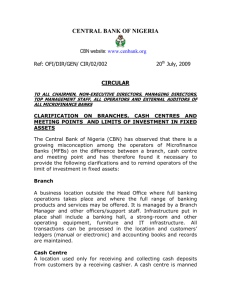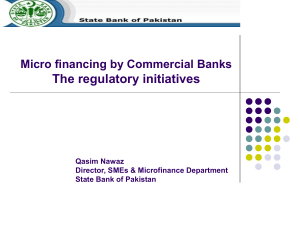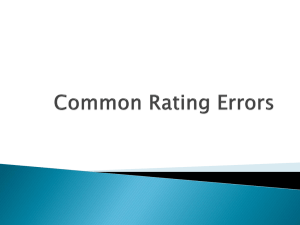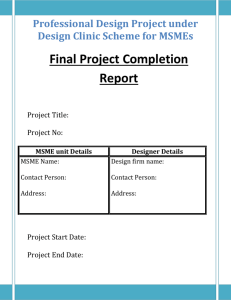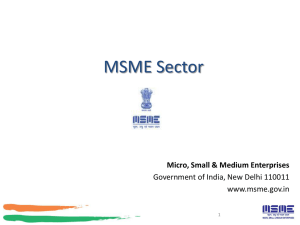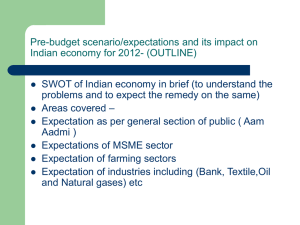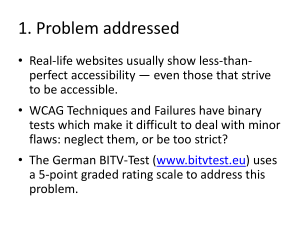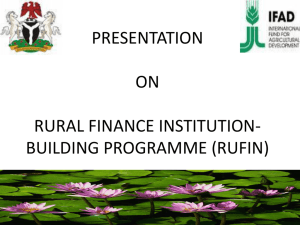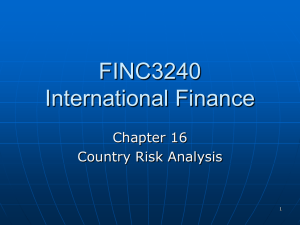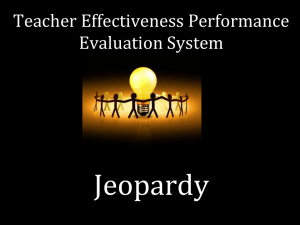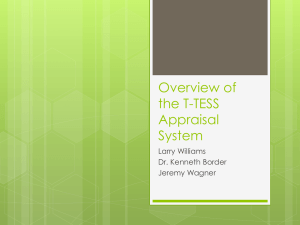MSME Financing: Challenges for MFBs
advertisement
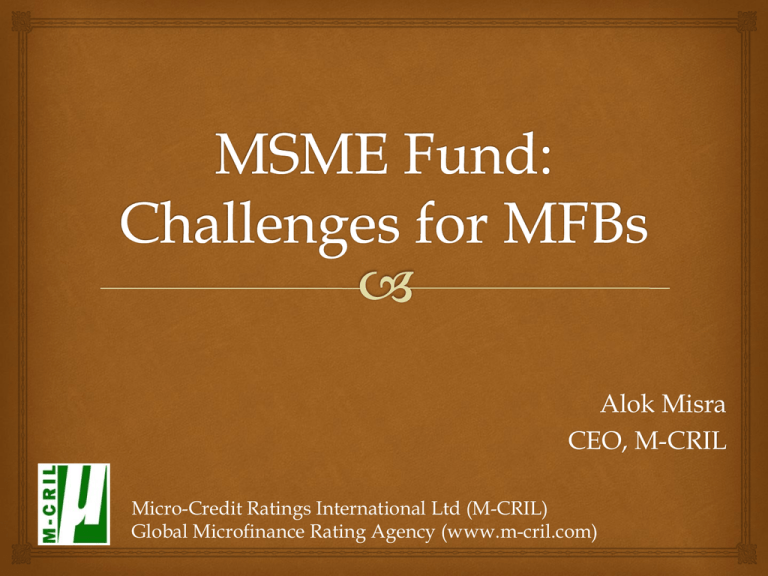
Alok Misra CEO, M-CRIL Micro-Credit Ratings International Ltd (M-CRIL) Global Microfinance Rating Agency (www.m-cril.com) Agenda Indian Experience Current Profile of MFBs MSME Fund: Eligibility criteria How will MSME fund help MFBs Challenges: Rating Agency Perspective Indian Experience Started as donor funded in 1990s by NGOs SIDBI set up lending facility in 1998 – backed by ratings; external third party ratings 2000-2003 mainly SIDBI and donor funded 2003 onwards – demonstration effect of ratings and SIDBI fund brought banks Transformation of NGOs to NBFCs started in 2006; now 85% market share As of now, 75% liabilities of MFIs from bank borrowings Current profile of MFBs ~900 MFBs in the country with predominant urban operations NGO-MFIs to also gradually transform to MFBs Average loan size ~500 US$ - some up to 2,500, tenor up to 1 year Deposits and Equity as the main source of funds High operating costs – absence of reliable data on MIX High cost of credit – Not part of Microfinance Transparency Absence of Ratings MSME Fund: Main conditions Compliance with Regulatory Capital of 10% Compliance with prevailing Prudential Ratios- Liquidity 20%, PAR <5%, OER <15%, Micro loans <=.5 mn should be 80% Average deposit and client growth rate of 20 % per annum(for institutions operating for over 2 years) Risk Management Framework acceptable to the regulators Corporate Governance Culture acceptable to the regulators Focus on SPM especially CPP How can MSME Fund be useful for MFBs 90% of MSME in Nigeria is MICRO – Total MSMEs 17 million, of which 80% have no financial access Diversify Fund Basket from Deposits and Equity More stable source of funding- Longer term allowing multiple cycles Achieve growth based on leverage The model used extensively in countries like India, where bank funding accounts for 80% of liabilities In Nigeria, MSME funding may catalyse banks to look at MFBs as partners Rating Framework: Mirrors Eligibility Criteria Financial profile Management Responsible practices & Operations Governance & Management Microfinance Institutional Rating Microfinance environment Big Challenges- Rater perspective GOVERNANCE & STRATEGY Board composition – governance & management separation Board committees – Audit Risk Effective performance review by Board Compensation structure Integrated Risk Management Framework –Beyond Credit risk Market strategy – where you go, to whom you lend Competition strategy Funding profile Big Challenges- Rater perspective MANAGEMENT SYSTEMS FINANCIAL PERFORMANCE Human Resources Quality Productivity and Efficiency Accounting System MIS Control mechanism including Audit Overdue tracking Client Protection Principles Financial Planning & Budgeting Capital Adequacy & Provisioning Portfolio quality Profitability & Sustainability Asset composition ALM system Policy on Profits Thank You
